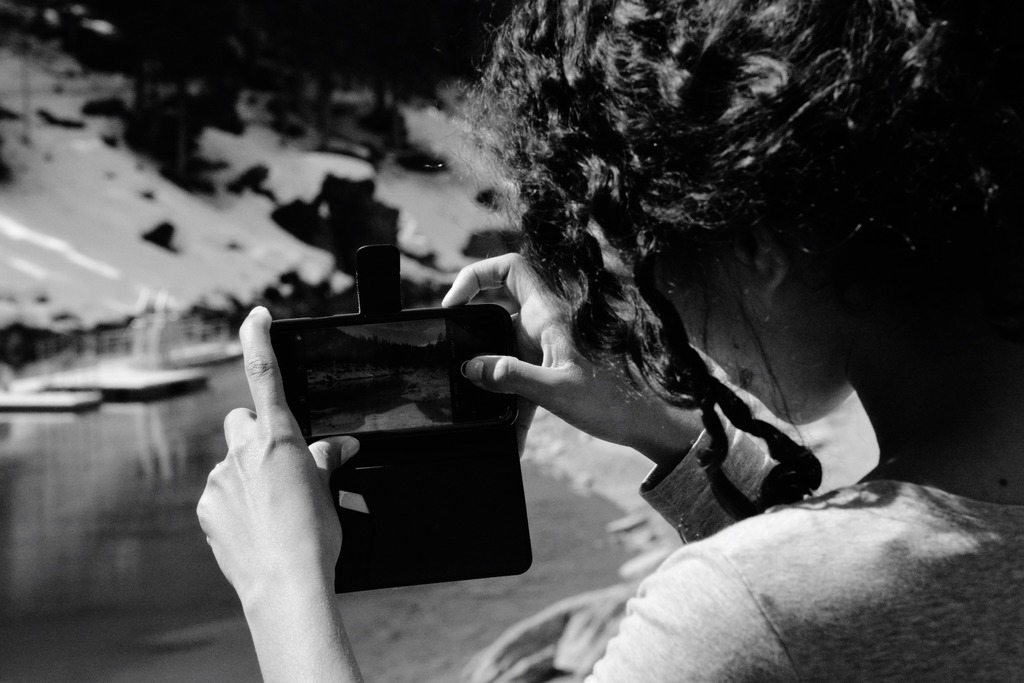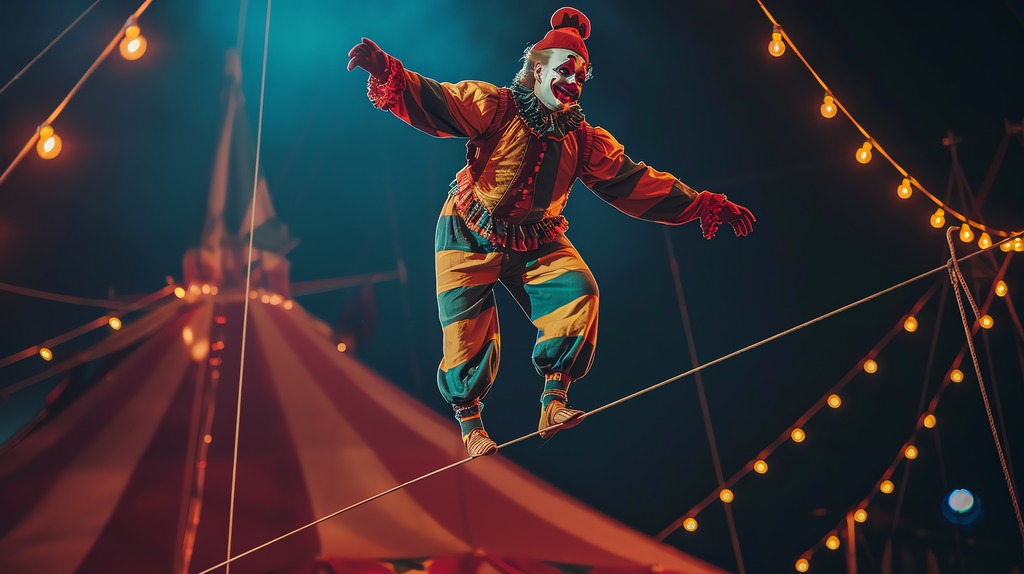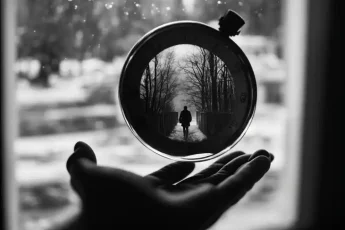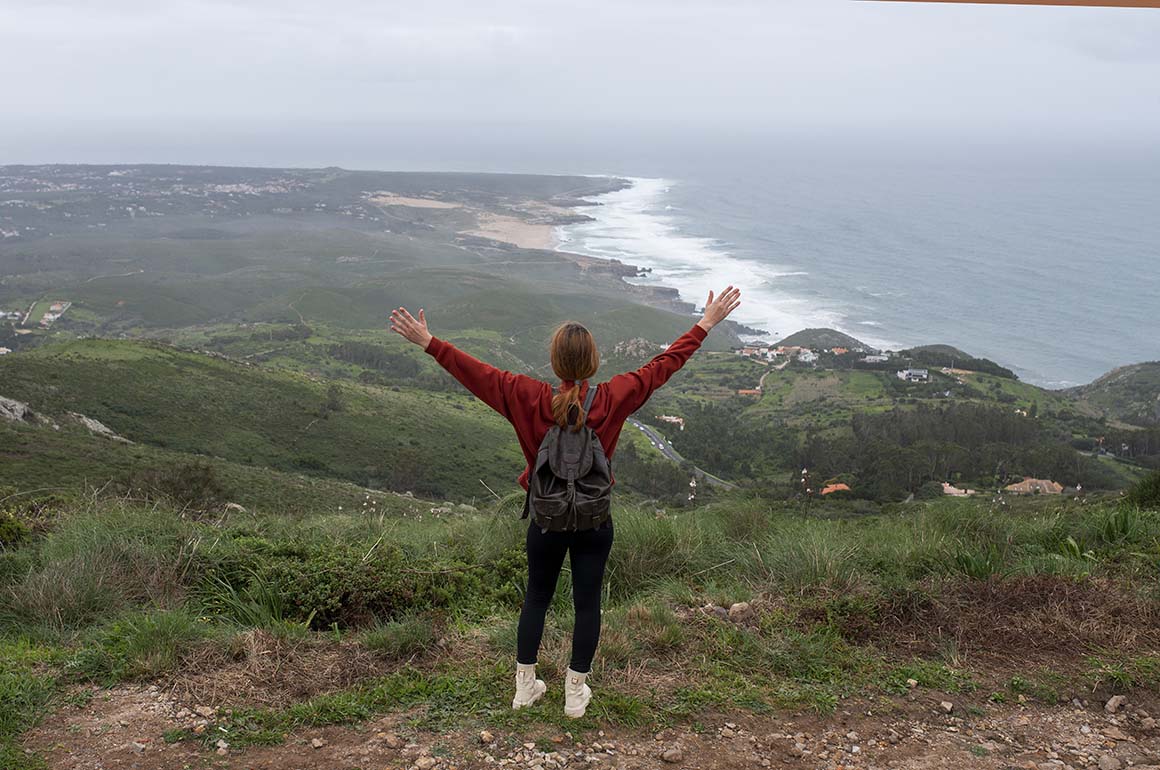Perfect Your City Shots: 5 Ultimate Street Photography Tips and Techniques

Transform your cityscapes with our 5 ultimate street photography tips and techniques. Learn to capture dynamic urban moments like a pro!
What makes a picture iconic?
Is it the reverence of fellow photographers or its timeless appeal?
To create an image with such profound impact, you need to master a couple of street photography tips and techniques. That’s the secret route to building a deep connection with viewers while also taking part in modern photography.

Young woman with long blond hair in a black leather jacket taking pictures with a camera in an alley with colorful graffiti on the walls
Imagine your first assignment as a documentary photographer, tasked with capturing the life of a 13-year-old street girl or a prostitute in an unfamiliar city. This article guides you how you can connect audiences to experiences they might never encounter otherwise.
Here are five key lessons from Mark’s methodology that can elevate your photography:
1. Spend Sufficient Time with Your Subject

The golden age of social documentary photography has waned, with fewer new photographers following in the footsteps of pioneers like Vivian Maier and Bruce Gilden.
Mastery in this field demands more than a few days; it requires immersing yourself deeply. So, there’s only one way to do this — spend extensive periods with your subjects.
For example, famous American photographer Mary Ellen Mark’s work on mental hospitals or brothels involved months of interaction. Such commitment fosters genuine connections and unveils the true essence of your subjects.
2. Gather Extensive Material

A clown in a colorful costume walks a tightrope high above a circus tent.
No great photographer ever settled for a single photo session.
For example, suppose you are on a project to cover Indian circuses. It should span several months, or almost a year, and involve numerous different circuses. This level of dedication to gathering material ensures that your final project is rich and varied, providing a deeper narrative.

PADOVA, ITALY – AUGUST, 24: View of gypsy biker on August 24, 2014
3. Embrace Quantity to Achieve Quality
A lot of photographers shoot over millions of frames throughout their career, averaging more than 100 frames daily over 50 years.
You might wonder — if they are a great photographer, why is just one shot enough?
Basically, the practice of snapping reflects the principle found in James Clear’s Atomic Habits, where a photography professor found that students who produced more images tended to create better work. The more you shoot, the better your chances of capturing that one iconic image.
As Stephen King advises, “Don’t wait for the muse. Your job is to make sure the muse knows where you are going.”
4. Prepare for Rejections
One of the biggest things no one talks about when it comes to photography is rejections. Photographers all the time face numerous, particularly when they shoot poverty, corruption, or prostitution.
But there’s only one thing that can overcome this challenge: perseverance.
Every photographer must have this resilience in documentary photography. Mary Ellen Mark also noted, “If you are going to be a photographer, I think you have to be prepared for rejection if you are going to be a photographer of people.”

Rear view of silhouette people walking in corridor
5. Adapt to Contemporary Trends
While the old methodology of photography of Ansel Adams, Robert Frank or Dorothea Lange were groundbreaking in their time, the modern landscape of street photography tips and techniques is different.
This era had its own dynamics, and the current environment is shaped by trends in celebrity journalism and digital platforms. Adapting to the current context—whether through crowdfunding, social media, or new distribution channels—is crucial. The shift from traditional magazine photography to modern celebrity-focused media underscores the need for flexibility.
Conclusion
Therefore, to create iconic images, follow these lessons:
- dedicate time to your subjects,
- gather ample material,
- understand that quantity enhances quality,
- be prepared for rejection, and
- adapt to the evolving media landscape.
In addition to them, your relentless pursuit and ability to connect with your subjects without judgment will amplify your work, and the quality of your photography.
For inspiration, explore the work of various great photographers, find the ones whose styles resonate with you.
Above all, there’s one essential tip that can be considered the ‘photography bible.’ Without it, all these tips and techniques are futile. Whenever you take a snap for a street photography, never forget that each of your photographs must tell a story. That’s possible only when you master the art of storytelling through photography.





 Welcome to this vibrant corner of the internet—"Dreamy Grace!" This lifestyle blog is a space for inspiration, creativity, and connection. Feel free to explore, engage, and share your thoughts—after all, this blog is just as much yours as it is ours. Happy reading!
Welcome to this vibrant corner of the internet—"Dreamy Grace!" This lifestyle blog is a space for inspiration, creativity, and connection. Feel free to explore, engage, and share your thoughts—after all, this blog is just as much yours as it is ours. Happy reading!








Leave a Comment